Endang Is a Force of Nature Powered by Love
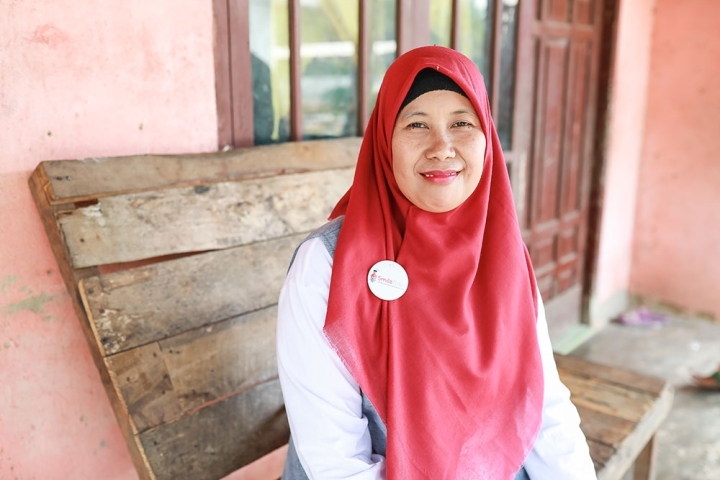
Though Endang Sasi’s title at Smile Train Indonesia partner Yayasan Ummi Romlah Foundation is “social worker,” “pathfinder” might be more accurate. Her job is to scour Sumatra’s thick jungles, dirt roads, and countless small villages in search of people with clefts. It’s hard, sometimes dangerous work, and she loves every second of it.
Thankfully, her job recently got much easier thanks to an Awareness Grant from Smile Train partner GSK. Money and distance now no longer stand in the way of her finding children with clefts and connecting them to the care that will change — and sometimes even save — their lives. She is our hero, and we caught up with her recently to learn more about what keeps her going.
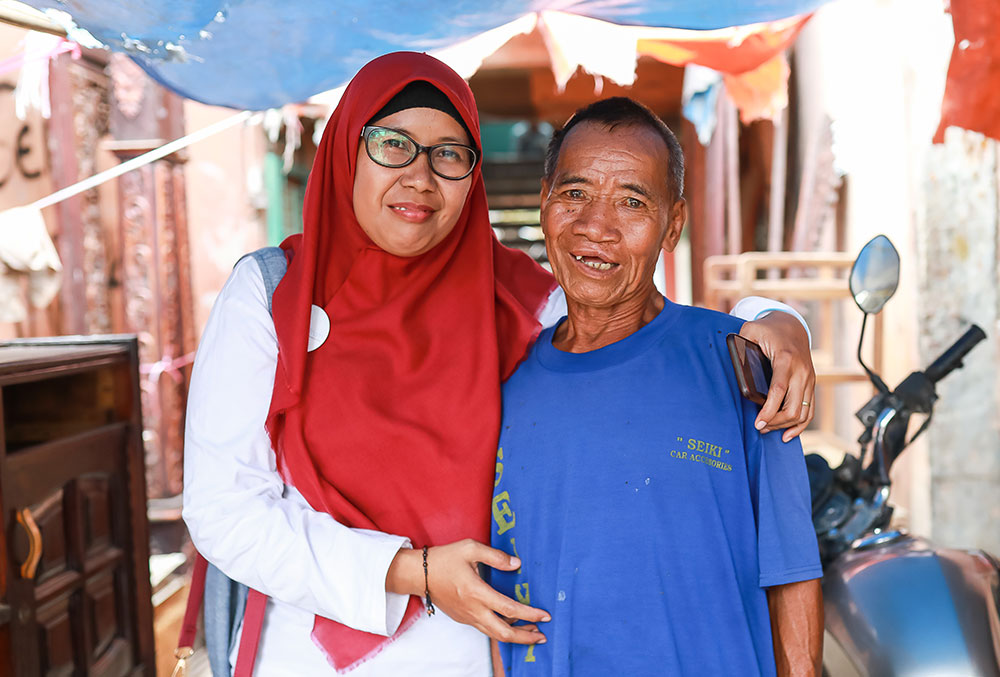
Can you tell me about your journey to Smile Train as a social worker? How did you come to this work and what inspired you to do it?
Part of the inspiration came from my family — helping those in need has long been a tradition for us. But really, I do it because I love it. I love helping people get the medicine they need, bringing them out from under obstacles, and everything else related to social work. At one point in my work, I came across a child whose family abandoned them because of their cleft. Connecting this child to the love and care they needed is what first brought me to Smile Train Indonesia. I was hooked immediately and wanted to do more.
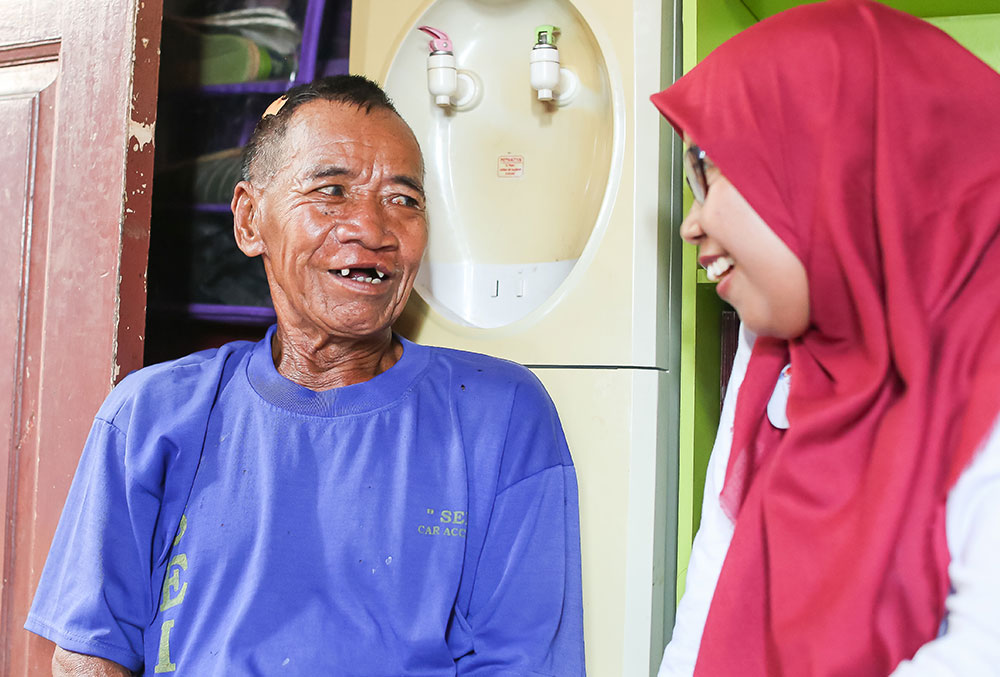
Are you cleft-affected or personally know anyone who is?
Personally, there is no history of clefts in my family, but it weighs deep on my heart. It’s such rewarding work because I love to make other people happy.
What was your job like before the GSK Awareness Grant? How did you reach potential patients? How has the grant affected your work?
Basically, I’m a social person; I live on the road! My hobby is to find ways to help people find good solutions to their problems. So this GSK grant has done a lot to help me reach patients. Sumatra is a huge island — it can sometimes take 15 hours or a whole day to reach children in remote areas. That requires a lot of planning, as well as costs for transportation, food, lodging, and other expenses beyond the actual work of providing care and raising awareness.
Thanks to the GSK awareness grant, I now never have to worry about missing any patient for lack of funding. I can keep my focus only on reaching children in need and making them happy.
What is the first thing you tell a child’s family when you meet them? What are the typical reactions? How do you convince the skeptics?
The first thing I do is introduce myself and Smile Train Indonesia. I say we never shame our kids with clefts; we help them by providing the free surgery and other care that they need. Then I work to convince them I am telling the truth by showing them before-and-after pictures of children who have received a new smile.
I also share my belief that children with clefts are special kids born to special parents and reassure them that there is no relationship between having a cleft and any other trait. In fact, cleft surgery will bring them the promise of a bright future, self-confidence, and the same abilities as others.
Finally, I tell them that that if they encounter any obstacles at all in receiving care from their local Smile Train partner, including transportation, that they should be sure to reach out to me so we can overcome these difficulties together.
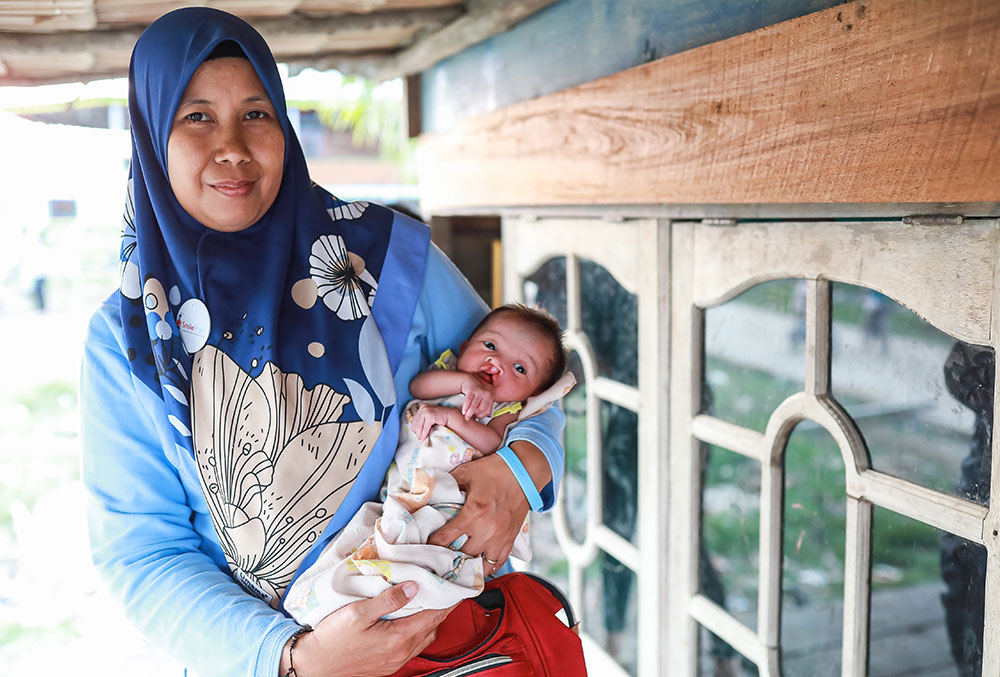
How has COVID-19 impacted your work?
COVID-19 has had a big impact. Most of the children I know had to have their surgeries postponed, but thank God, because they are local, Smile Train’s partners on Sumatra were still able to do the surgeries before too long under strict the COVID-19 health protocols that they and Smile Train designed together.
Of course, pandemic lockdowns have also made it more difficult for me to reach patients out in the field, and this is why I am so glad to have established good relationships with many stakeholders. For example, I have always maintained relationships with the government, police, army, hospitals, even the bicycle rental man, so that when he meets a customer with a cleft, he gives them information about Smile Train.
The pandemic has made social media more important, but it is not a cure-all. In my opinion, information is valuable as long as it can reach the right people, and in the remote areas where I work, sometimes people cannot reliably reach social media due to limited access.
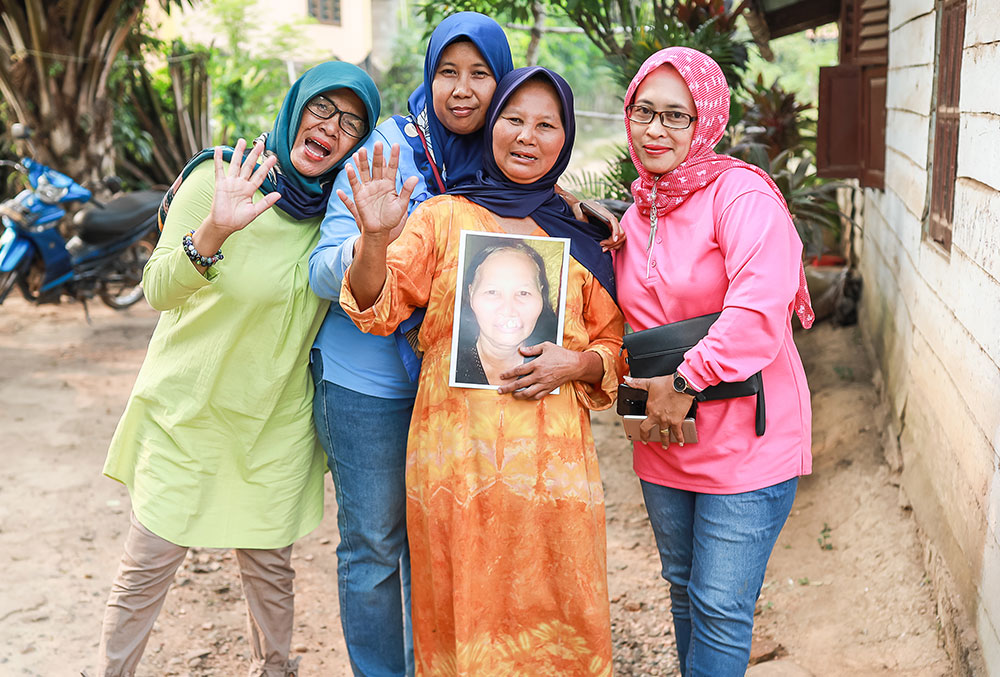
What broader challenges remain in finding patients and connecting them to care in your region? How are Smile Train and GSK helping to address these challenges?
The issues in my region extend beyond cleft, and thank God, my center has a solid outreach team consisting of a local plastic surgeon, an anesthesiologist, a nurse, and others who simultaneously provide care and do outreach in remote areas. They make sure they help everyone they meet and run the program with a smile
Can you share a favorite story from the field?
Every story that ends with a family and a child receiving new smiles and new hope for the future is my favorite!
And the stories don’t end there, because I also love to see my former patients working and living healthy lives.
That is most valuable, and not only for the family. It brings me happiness that cannot be put into words. It’s so extraordinary.
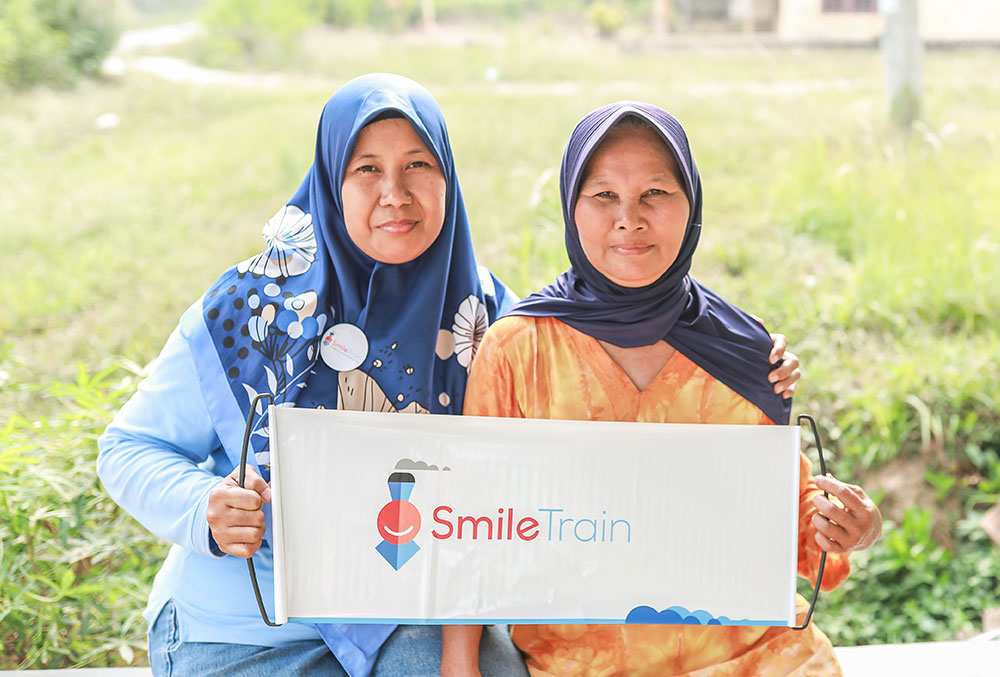
What would you like to say to Smile Train’s donors?
From the deepest of my heart, I would like to say thank you to all Smile Train donors for helping Indonesian children with clefts receive a new smile and look toward their beautiful futures with confidence.
Thank you for this kindness. I pray that you will keep onward and always help bring smiles to those in need.
